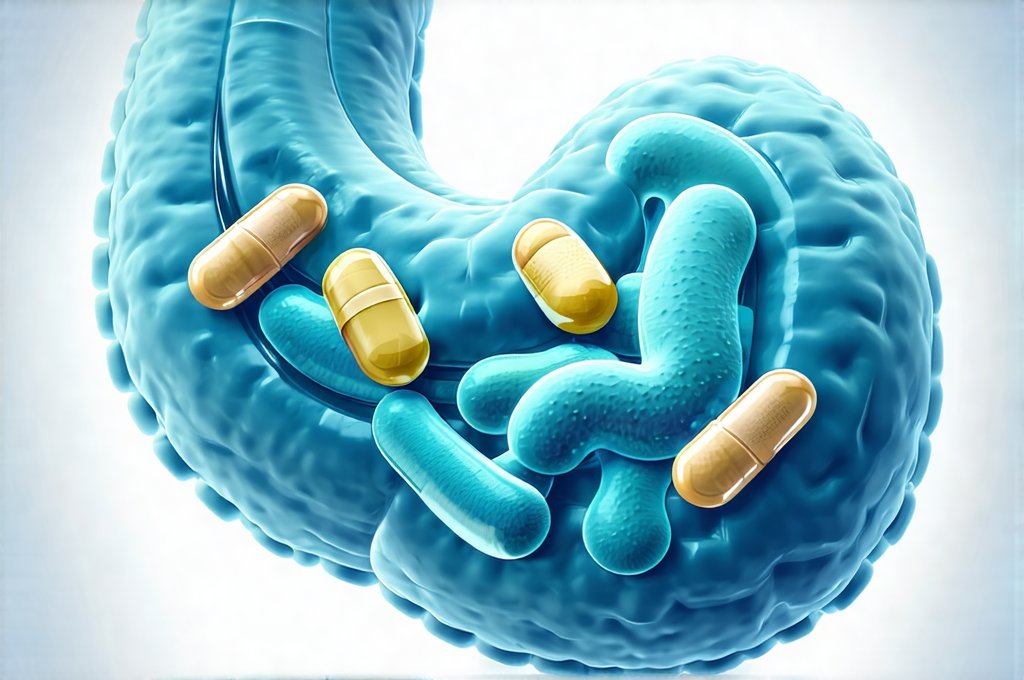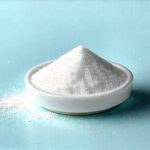Gastroesophageal reflux disease (GERD), commonly experienced as heartburn, affects millions worldwide, significantly impacting quality of life. Traditional treatments often involve lifestyle modifications and medications aimed at reducing stomach acid. However, increasing interest surrounds the potential role of probiotics – live microorganisms intended to benefit the host – in managing GERD symptoms. The gut microbiome, a complex ecosystem within our digestive system, is increasingly recognized for its influence on overall health, including digestive function and immune regulation. This has led many to explore whether supplementing with probiotics needed can offer an alternative or complementary approach to conventional GERD management.
The appeal of probiotics stems from their perceived ability to restore balance within the gut microbiome, potentially addressing some underlying factors contributing to GERD. Factors like diet, stress, and antibiotic use can disrupt this delicate balance, leading to dysbiosis – an imbalance in gut bacteria. Some theories suggest that a healthier gut microbiome may reduce inflammation, improve digestion, and even influence the lower esophageal sphincter (LES), the muscle preventing stomach acid from flowing back into the esophagus. However, the relationship between probiotics and GERD is far from straightforward, with research yielding mixed results and highlighting the importance of strain specificity and individual variability. Are sugar detoxes helpful in addressing some underlying issues?
Understanding the Gut-GERD Connection
The link between gut health and GERD isn’t simply about reducing acidity; it’s a more nuanced interplay involving immune function, inflammation, and even nerve signaling. A compromised gut microbiome can contribute to increased intestinal permeability – often called “leaky gut” – allowing undigested food particles and bacterial toxins to enter the bloodstream, potentially triggering an inflammatory response throughout the body. Chronic inflammation is implicated in many health conditions, including GERD, exacerbating symptoms and hindering healing. The vagus nerve, a major communication pathway between the gut and the brain, further complicates this relationship; changes in gut microbiome composition can influence vagal tone, affecting digestive processes and potentially contributing to reflux episodes.
Probiotics aim to modulate this complex ecosystem by introducing beneficial bacteria strains that may compete with harmful microorganisms, strengthen the gut barrier function, and modulate immune responses. Certain probiotic strains have demonstrated in vitro (laboratory) abilities to inhibit the growth of Helicobacter pylori, a bacterium linked to gastritis and peptic ulcers which can contribute to GERD symptoms, although this isn’t a direct treatment for GERD itself. Furthermore, some probiotics produce short-chain fatty acids (SCFAs), like butyrate, which nourish colon cells, reduce inflammation, and support overall gut health. However, it’s crucial to recognize that these effects aren’t universally observed across all probiotic strains or individuals; the specific strain, dosage, and individual gut microbiome composition play significant roles. Traditional remedies have long been used alongside modern medicine.
It’s important to note that GERD is a heterogeneous condition, meaning its causes and presentations vary considerably between individuals. Some people experience GERD due to LES dysfunction, others due to hiatal hernia, and still others may have sensitivities to certain foods or lifestyle factors. Therefore, a “one-size-fits-all” probiotic approach is unlikely to be effective for everyone. The potential benefits of probiotics for GERD are highly individualized and require careful consideration of the underlying cause of GERD and the specific characteristics of the probiotic strain being used. Are you reacting to something in your diet?
Probiotic Strains & Their Potential Impact
The world of probiotics is vast, with hundreds of different strains available commercially. Not all strains are created equal, and their effects can differ dramatically. Some strains have shown promising results in studies related to digestive health, while others may have little or no impact on GERD symptoms.
- Lactobacillus and Bifidobacterium are two of the most commonly used probiotic genera. Specific strains within these genera, such as Lactobacillus reuteri, Lactobacillus gasseri, and Bifidobacterium infantis, have been investigated for their potential benefits in digestive health.
- Research suggests that certain strains may help reduce bloating and gas, common symptoms associated with GERD, but this doesn’t necessarily translate to reduced acid reflux itself.
- Other strains are being studied for their role in strengthening the gut barrier function, potentially reducing inflammation and improving overall digestive health.
However, it’s vital to avoid generalizations. A study demonstrating positive effects with Lactobacillus reuteri doesn’t mean all Lactobacillus strains will have the same outcome. Strain specificity is paramount; understanding which strain has been studied for a specific condition and its demonstrated efficacy is crucial before considering supplementation. Furthermore, the delivery method (capsule, powder, fermented foods) can also influence probiotic viability and effectiveness. Are probiotics safe to use long term?
Potential Adverse Effects & Considerations
While probiotics are generally considered safe for most people, they aren’t without potential side effects. The most common adverse effects are mild and transient, including bloating, gas, and diarrhea, especially when first starting supplementation. These symptoms typically resolve within a few days as the gut microbiome adjusts. However, in rare cases, more serious complications can occur, particularly in individuals with compromised immune systems or underlying health conditions.
- Small intestinal bacterial overgrowth (SIBO) is one potential concern. Introducing probiotics into a digestive system already prone to imbalances could exacerbate SIBO symptoms in some individuals.
- Individuals taking immunosuppressant medications should exercise caution and consult their healthcare provider before starting probiotic supplementation.
- Probiotics are not intended to replace conventional GERD treatments, such as lifestyle modifications (dietary changes, weight management, elevating the head of the bed) or medications prescribed by a doctor.
It’s important to remember that probiotics should be viewed as a potential adjunct therapy, not a cure for GERD. A comprehensive approach involving lifestyle adjustments and medical guidance is essential for effective management of this condition. Before starting any probiotic regimen, it’s crucial to discuss with your healthcare provider to determine if it’s appropriate for you and to select the most suitable strain based on your individual needs and health status. Are you mistaking hunger for something else?
Navigating Probiotic Selection & Implementation
Choosing the right probiotic can be overwhelming given the sheer number of products available. Here are some guidelines:
- Look for Strain-Specific Research: Prioritize probiotics that have been specifically studied for digestive health or GERD symptoms, with documented research supporting their efficacy. Avoid products that only list genus and species (e.g., Lactobacillus acidophilus) without specifying the strain number (e.g., Lactobacillus acidophilus DDS-1).
- Consider CFU Count: Colony Forming Units (CFU) indicate the number of live microorganisms per dose. While a higher CFU count isn’t always better, it’s important to choose a product with an adequate dosage based on research for the specific strain.
- Check for Third-Party Testing: Look for products that have been independently tested by third-party organizations (e.g., USP, NSF International) to ensure quality and accuracy of labeling. This verifies that the product contains what it claims to contain.
- Start Slowly & Monitor Symptoms: Begin with a low dose and gradually increase as tolerated, carefully monitoring for any adverse effects. If you experience significant discomfort, discontinue use and consult your healthcare provider.
- Combine with Prebiotics: Prebiotics are non-digestible fibers that serve as food for probiotics, promoting their growth and activity within the gut. Incorporating prebiotic-rich foods (e.g., onions, garlic, bananas, oats) or a prebiotic supplement can enhance probiotic effectiveness.
Ultimately, the decision of whether to use probiotics for GERD is personal and should be made in consultation with your healthcare provider. While they hold promise as an adjunct therapy, understanding their limitations, potential side effects, and the importance of strain specificity are crucial for safe and effective implementation. Eating the right amount is also key to a healthy gut.


















